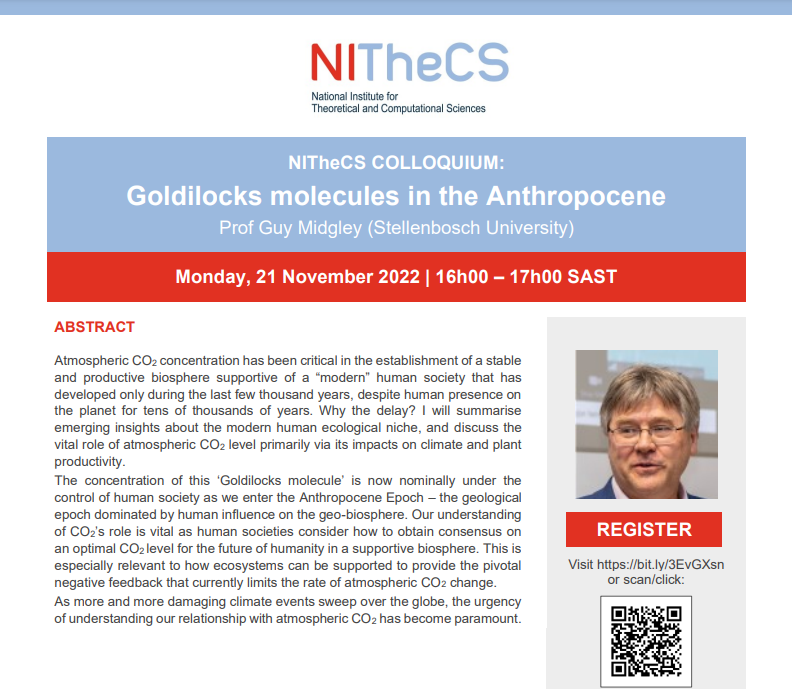
NITheCS Colloquium: ‘Goldilocks molecules in the Anthropocene’ by Prof Guy Midgley
Atmospheric CO2 concentration has been critical in the establishment of a stable and productive biosphere supportive of a “modern” human society that has developed only during the last few thousand years, despite human presence on the planet for tens of thousands of years. Why the delay? I will summarise emerging insights about the modern human ecological niche, and discuss the vital role of atmospheric CO2 level primarily via its impacts on climate and plant productivity. The concentration of this ‘Goldilocks molecule’ is now nominally under the control of human society as we enter the Anthropocene Epoch – the geological epoch dominated by human influence on the geo-biosphere. Our understanding of CO2’s role is vital as human societies consider how to obtain consensus on an optimal CO2 level for the future of humanity in a supportive biosphere. This is especially relevant to how ecosystems can be supported to provide the pivotal negative feedback that currently limits the rate of atmospheric CO2 change. As more and more damaging climate events sweep over the globe, the urgency of understanding our relationship with atmospheric CO2 has become paramount.

